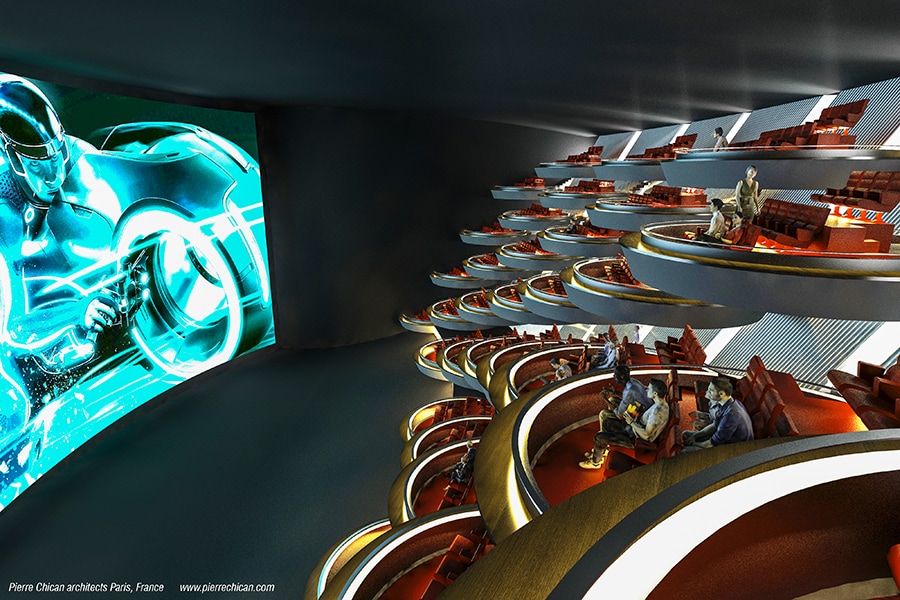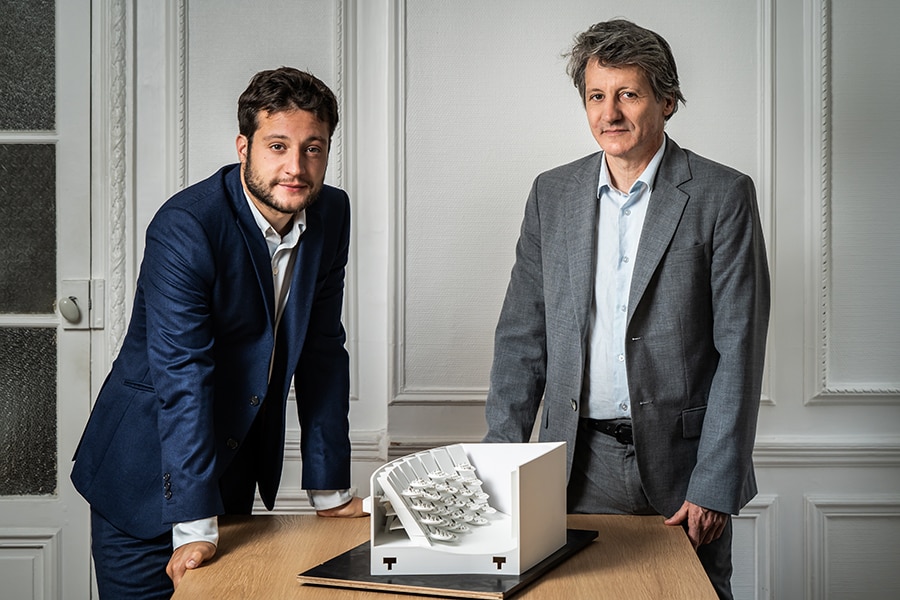As cinemas across India have started re-opening, exhibitors have been scratching their heads thinking about ways to innovate to bring audiences back. From private screenings to various technologies being introduced to ensure safety, exhibitors are doing the best they can.
In the midst of the pandemic, France-based architecture firm ÅŒma Cinemas has come up with pod-like design that mandates social distancing, even though the founders, Nicolas and Pierre Chican never imagined this as the use case when they came up with the idea two years ago.
It is also a response to cinemas that need to adapt themselves to compete with OTT platforms. The founders believe, "In ÅŒma Cinema, every seat is the best seat in the house."
The firm has projects under construction in Paris currently, slated to open at the end of 2021. Their other focus areas are the Middle East and Asia markets, and India is key to their strategy, the founders say.
Q. What was the initial idea for ÅŒma?
Nicolas Chican: Pierre came up with this concept about two years ago. He is an architect with a specialism in the realisation of movie theatre for more than 30 years now. He wanted to bring spectators closer to the screen.
In a traditional movie theatre, there’s a slope of 20 to 25 degrees Pierre wanted to increase that slope for a better viewing experience, but he couldn"t do the due to the accessibility standards, as it would require spectators to climb more stairs.
So we decided to divide the room into separate circular boxes, such that all spectators come closer to the screen. Here, the slope is about 50-60 degrees, bringing the last rows closer to the screen. Unlike traditional cinemas, all entries and exits are from the back of the room, so there is no visual interruption or distraction during the film. Our focus is to ensure that audiences across the movie theatre have an optimal viewing experience.
Q. How has the pandemic made the design more relevant?
Nicolas: We have been working on this design for more than two years now, when there was no Covid-19. But of course, it becomes extremely relevant now and it is suitable for people following social distancing norms.
Most cinema operators we approached, told us that we finally found a solution to combine the intimacy of being in a private club with a limited number of seats and at the same time, enjoying a really immersive viewing experience.
![nicolas chican_pieree chican_bg nicolas chican_pieree chican_bg]() (L-R) Nicolas Chican, Co-Founder and Pierre Chican, CEO and Founder, ÅŒma Cinema
(L-R) Nicolas Chican, Co-Founder and Pierre Chican, CEO and Founder, ÅŒma Cinema
Q. What are your plans to enter the Indian market?
Nicolas: The plan is to approach cinema operators in India, since they already have luxurious multiplexes. India is a key market for us, as Indians are movie lovers and it is one of the biggest cinema markets in the world.
We initiated conversations with a cinema operator in India in early January and they wanted to have a feasibility study on how to integrate the ÅŒma cinema. But after Covid-19 hit, this was shelved.
Jean-Marie Dura: However, now we are having some discussions with some operators, but are under strict NDAs, so we can"t be specific about it. It doesn"t have to be in a multiplex, it can be the jewel or the flagship offering of the multiplex, but it can also be a standalone or single-screen cinema. We have also been approached by cities that want to redevelop some of buildings, with a signature landmark link and adding single screens to their portfolio of offerings.
Q. Revenues have been close to zero during the lockdown, and the industry is only just restarting. Do you think operators would be interested in revamping their design at a time like this?
Jean-Marie: They are very eager to, especially during times like these. This [situation] calls two course of action: one, operators need to face the situation and tweak costs so that they can survive. Second, they need to think about the future and invest in it. It is a necessity now more than ever before to propose something different to the audience so that they want to go back to the cinema. This might be just the opportunity for cinema operators to think bigger, smarter and propose something new.
Nicolas: I read that people are now paying for private screenings in India. But, with the ÅŒma concept, you will be able to rent each pod for family or friends. So from a cinema operator point of view, you can multiply the private screenings in one room, at the same time. Eventually, multiplying their revenues too.
Q. Who is the target audience?
Jean-Marie: It is meant for the luxury market, but also for the masses. The cinema business over the last 5-10 years, globally, has seen a trend to go towards a more luxury experience—recliner seats, more space and better quality. ÅŒma fits right in.
Q. By when are we likely to see the first ÅŒma Cinema in India?
Nicolas: We would like to first progress on the project we were working on before the Covid crisis happened in India. So, if all goes well we are expecting to start building by the end of next year, depending on the recovery.
Q. What would you say is the threat of OTT platforms to cinemas?
Jean-Marie: Exhibitors all over the world are scratching their heads thinking about how to differentiate the experience. It’s a great opportunity for us, to help operators globally lure audiences back to cinemas.


 (L-R) Nicolas Chican, Co-Founder and Pierre Chican, CEO and Founder, ÅŒma Cinema
(L-R) Nicolas Chican, Co-Founder and Pierre Chican, CEO and Founder, ÅŒma Cinema